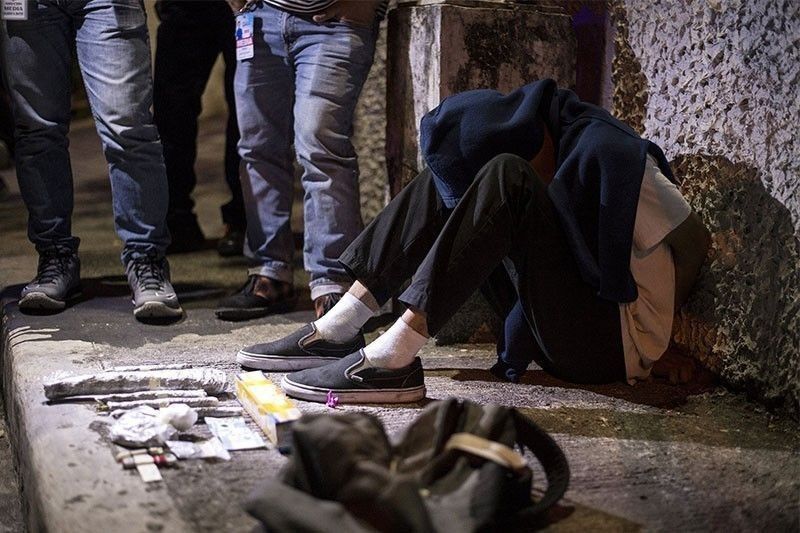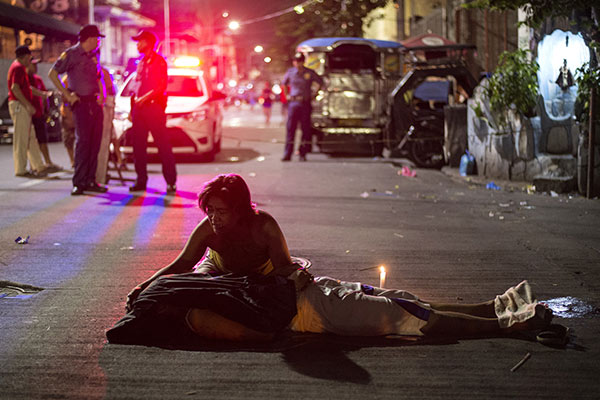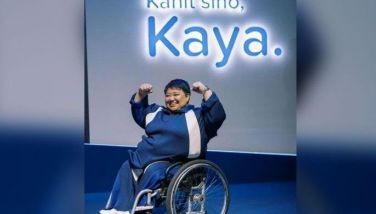With no ICC probe set, advocates say drug war victims can still pursue accountability elsewhere

MANILA, Philippines — The lack of finality from the International Criminal Court on a probe into the Duterte administration's war on drugs should not hamper local efforts on the ground to exact accountability from the past administration, advocates say.
Speaking at a webinar late Thursday evening entitled Building Back with Justice? Marcos, Duterte, the ICC and the Philippine Drug War and organized by the DRCNet Foundation, former PCGG Ruben Carranza said that there are still a few options victims can look at in the absence of a decision from the ICC.
To recall, the ICC in June formally requested judges of the pre-trial chamber to move forward in the probe into the President Rodrigo Duterte’s “war on drugs” after it determined that the Department of Justice-led panel assessment was a mere "desk review." The chamber has not yet made a decision on this request.
"It’s important to remember that the International Criminal Court is not the only institution that can pursue accountability for the drug war…prosecution is not the only measure by which extra-judicial killings, crimes against humanity committed in the drug war can be pursued and those behind them be held accountable," Carranza said.
"Justice does not only equate with courts; it's important to remember that justice can be pursued elsewhere outside courts," he also said.
READ: Palace 'exasperated' at ICC's request to continue Duterte's drug war probe
Is there hope for a transitional justice process for Duterte’s drug war? Carranza says there are still a few options victims can look at: first, a "truth-telling process" that can be organized at the local and community level among the urban poor communities being targetted by the drug war.
He pointed to the re-exhumation of bodies conducted by forensic pathologist Raquel Fortun, saying the process of removing remains and examining them should be supported by the international community.
"That process of removing remains not only empowers families of the victims into acting on their demands for justice but gives them hope that even there's no formal state process that seeks accountability within the Philippines...there are local processes going on outside of state processes," he said.
The second approach, Carranza said, involves reparations for families of drug war victims. He pointed to the law on reparations going after the ill-gotten wealth of the Marcos family by creating the Human Rights Victims' Claims Board.
"The Philippines knows what reparations is and has given reparations for victims. So it is possible for them to be given to victims of the drug war, but is it possible to do that under Marcos?"
Carranza also pointed out Danao’s own history of running scot-free: when he was still Duterte’s police chief in Davao, he was sued by his wife for domestic abuse. Duterte forgave him for this.
"Marcos Jr. will say what the Global North's elites will want to hear...that he will go pursue accountability for human rights violations, that he will pursue [a health approach]. This is, of course, appealing to Westerners, but doesn't deal with the root causes of drug use in urban poor communities in the first place."
"He and his family have an interest in maintaining the impunity of Duterte, because any action that will open accountability of presidents past and even further in the past will obviously re-open questions around the accountability of the Marcos family. And the Marcoses will defend their ill-gotten wealth for as long as they can."
In an earlier interview, the Commission on Human Rights said that it supported Marcos' intent to continue the "drug war," as long as his iteration of it would be one "that is based on the right to health, rather than from the peace and order approach."
"There is more pressure for the next administration and for the Philippine National Police to demonstrate that it is really in support of accountability measures and cleansing programs," CHR executive director Jacqueline de Guia told Philstar.com.
"We do hope that lessons were learned in the campaign against drugs [and] that there will be tangible and concrete steps to be taken by the government to ensure that the human rights situation on the ground will improve."
Duterte's 'war on drugs'
Aurora Parong of the Philippine Coalition for the ICC also called on the United Nations Human Rights Council to review its decision not to probe the Duterte administration's anti-drug campaign.
"If ever it continues with capacity-building because it's also important, there should be key result areas for impact-assessment of its assistance to the Philippines," she said.
Parong pointed out that the ICC is looking at "16 situations" including the Philippines, Ukraine, Myanmar, and Bangladesh, which could only delay further the lack of a decision on its drug war probe.
"We think that the international community should provide the resources that the court needs in order to be able to act as a court of last resort and deliver justice and to be faster also rather than being at the back burner," she said.
Duterte and his administration allies have attacked both the ICC and the United Nations and have vowed never to cooperate with international investigations, asserting that domestic remedies are working for victims.
Under President Rodrigo Duterte's flagship campaign against illegal narcotics, official police figures acknowledge at least 6,117 deaths in anti-drug operations since July 2016.
Police leadership earlier claimed the number was as high as 8,000 but eventually dialed this back by thousands without explanation. However, rights groups both here and abroad say the real number may be as high as 30,000.
Despite an uptick in killings and operations during the coronavirus pandemic, government data compiled by the United Nations Office on Drugs and Crime found that crystal methamphetamines or shabu were still found to be behind the most arrest and treatment admissions in the country in 2020.
Duterte won the presidency in 2016 on, among other things, promises of dealing with illegal drugs within six months. He failed to meet this self-imposed deadline and eventually asked the public for a six-month extension that he also failed to meet.
"The continuation of the drug war in many ways isn’t contingent on who the president is now. Part of what the drug war unleashed, part of what Duterte unleashed has been the creation of a national death squad that has now come to exist apart from Duterte himself. It’s important to mention this because I don’t think we can reckon with accountability for the drug war based on who the president of the Philippines is," Carranza said.
"It’s important to look at the institutions that enforce the drug war, both the formal state institutions, the Philippine National Police, and the non-institutional and yet, much more powerful creations that the drug war has led to: a death squad that used to be local; Davao City has become national under Duterte, and this national death squad continues."
— with a report from Kaycee Valmonte
- Latest
- Trending






























